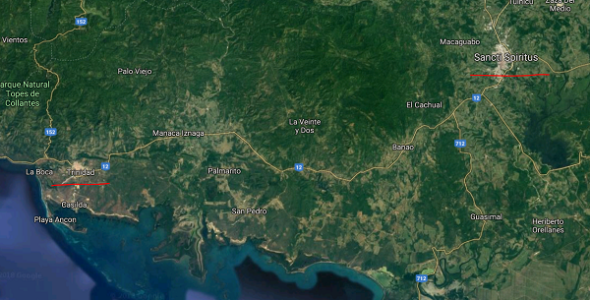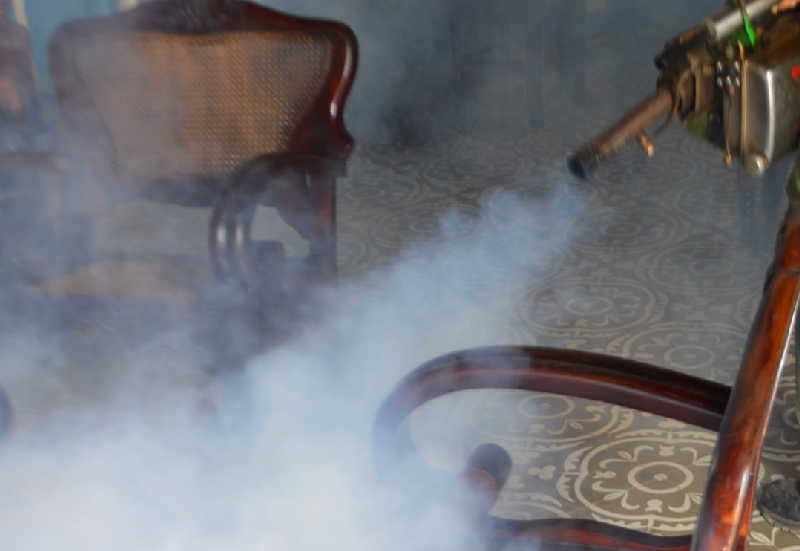
According to Statista, over 5 million tourists will visit Cuba by the end of 2018., and here we are entering the last quarter of 2018 and the Cuba Provincial Center for Hygiene, Epidemiology and Microbiology (CPHEM) has advised that there is a dengue outbreak in the area surrounding the provincial cities of Trinidad and Sancti Spíritus. According to Escambray (Spanish language newspaper of Sancti Spíritus) widespread fumigation is taking place give the high epidemiological risk presented by the presence of Aedes Aegypti (yellow fever mosquito).

Travelers to Cuba should take appropriate precautions, consult with their medical professionals and ensure they have their immunizations up-to-date to include Yellow Fever, which is required by the Cuban authorities (and must be administered at least ten days prior to arrival in Cuba).
Dr. Yurien Negrín Calvo, Deputy Director of Epidemiology at CPHEM, “The province today does not have a proven dengue transmission. So far there is no alarm for the population, the fundamental thing is that they are disciplined in the control of the vector and that we can access all the actions that the Health system and the political and mass organizations do today to avoid the procreation of the mosquito and that there is transmission.” That said, sources within the activist community of Cuba advise that dengue is much more widespread than being reported by media and the CPHEM.
As the 2018-19 cruise season begins to gin up, we note that only two cruise lines have ports of call in Cuba - Royal Caribbean and Azamara Club Cruises (a Royal Caribbean line). Cruisers are historically among the most adventuresome of tourism travelers and the desire to step back in time and visit cities such as Trinidad and its quaint city center or take a bike tour between Trinidad and Sancti Spíritus are among the many excursions which are available.
We have written on diseases which travelers may encounter in the past, relying heavily on information provided by the World Health Organization and the Center for Disease Control (CDC). While the CDC has not issued an alert for dengue there is a current health advisory re Cuba for the Zika virus, which is also mosquito borne.
We therefore provide the following information from the CDC and EPA to assist travelers in their preparation for travel to Cuba.
CDC’s advice re Dengue re transmission of the Dengue Virus
Dengue is transmitted between people by the mosquitoes Aedes aegypti and Aedes albopictus, which are found throughout the world. Insects that transmit disease are vectors. Symptoms of infection usually begin 4 – 7 days after the mosquito bite and typically last 3 – 10 days. In order for transmission to occur the mosquito must feed on a person during a 5- day period when large amounts of virus are in the blood; this period usually begins a little before the person become symptomatic. Some people never have significant symptoms but can still infect mosquitoes. After entering the mosquito in the blood meal, the virus will require an additional 8-12 days incubation before it can then be transmitted to another human. The mosquito remains infected for the remainder of its life, which might be days or a few weeks.
The EPA provides insight into finding EPA-Registered Mosquito Adulticides and Larvicides
The National Pesticide Information Center’s NPRO portal EXIT is a public access point to the EPA’s registered pesticide database. NPIC is an EPA information-sharing partner, and NPRO allows searches for pesticides that are registered against specific pests (such as Aedes mosquitoes), specific active ingredients, use sites (such as Ultra Low Volume, Institution, Outdoors, etc.), or Pesticide Types (such as Repellent or Feeding Depressant), then filter the results for actively registered products. NPRO has a type-ahead feature that suggests terms in the database based on the words you type, which makes it easier to find the proper search terms.
 Travel Securely Securely Travel
Travel Securely Securely Travel


